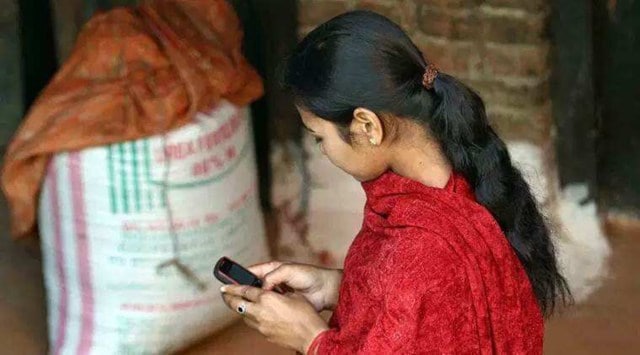Con call: In Haryana’s Mewat, 5 lakh SIM cards blocked since Jan 1
The police were acting on 66,784 complaints made between January 1, 2022, and December 31, 2022, with Rs 301.48 crore allegedly lost to cybercrimes originating from Mewat, a region in Haryana's Nuh district that has gained notoriety for being a hotbed of cybercrime.
 The officer said they noticed multiple uses of the same International Mobile Equipment Identity (IMEI) number (a unique 15-digit code that identifies a device).
The officer said they noticed multiple uses of the same International Mobile Equipment Identity (IMEI) number (a unique 15-digit code that identifies a device). Since January 1 last year, the Haryana Police’s Cyber Crime Cell has blocked almost 5 lakh SIM cards that were in use in the state’s Mewat region to commit cyber frauds across the country. The SIM cards were in use in nearly 40 villages, with police identifying at least 402 alleged criminals involved in cyber frauds.
The police were acting on 66,784 complaints made between January 1, 2022, and December 31, 2022, with Rs 301.48 crore allegedly lost to cybercrimes originating from Mewat, a region in Haryana’s Nuh district that has gained notoriety for being a hotbed of cybercrime.
So far, the Cyber Cell has registered 2,165 cases, arrested 1,065 people and made recoveries or put on hold suspected fraudulent transactions to the tune of Rs 46.91 crore. Officials said the fraudulent SIM cards were identified with the help of Artificial Intelligence and Facial Recognition Powered Solution for Telecom SIM Subscriber Verification (ASTR), a tool developed by the Department of Telecommunications (DoT).
A senior officer said, “We used cell tower dump analysis in Mewat to identify 4,96,562 mobile numbers issued from other states but used exclusively in this region. We have identified 15,672 more numbers and blocked 1,959. Eleven suo moto cases have been registered. Suspicious links with other states were found in six of these cases. The details have been shared with the states concerned.”
The officer said they noticed multiple uses of the same International Mobile Equipment Identity (IMEI) number (a unique 15-digit code that identifies a device). “The fraudsters were simply using a SIM card to make a call, then switching off the phone, removing that SIM, putting a new SIM in the same phone to make the next call and so on.”
Senior officers said that while a maximum of six SIM cards can be issued on a single identity proof, in several cases, over a dozen cards had been procured.
Additional Director General of Police (State Crime Branch) O P Singh said instructions have been issued to mobile network operators for verification of documents submitted to procure SIM cards.
From two villages in 2018 to 40, Mewat in Nuh district has ended up on the cybercrime map of India. While the fraudsters have expanded their network, police have kept pace by employing new technology and surveillance tools to. The mass blocking of SIM cards is a step in this direction.
Explaining the modus operandi, a senior officer said, “One person arranges for SIM cards using fake documents, the second gets bank accounts and payment applications linked to these SIM cards, the third uses another SIM card to call and dupe potential targets, while the fourth withdraws the money. The offenders mostly target people living far away to evade arrest.”
A senior officer told The Indian Express that the Union Ministry of Home Affairs (MHA) has raised concerns over cybercrime in Mewat. In a meeting with an MHA official on February 6, the Crime Branch’s Cyber Cell had proposed that “the jurisdiction of the investigation be shifted from the state of the victim to the state of the accused for instant apprehension”.
Singh explained, “For example, a criminal in Haryana dupes a Kerala resident of Rs 40,000. As per rules, the case will be registered in Kerala. The Kerala police will start a probe to trace the accused to Haryana. They will then come all the way to Haryana to identify the fraudster’s location and make an arrest. This process involves time and money. Even complainants back out at times. If the probe jurisdiction is shifted to the offender’s state, the nearest police station can simply nab the accused. The Kerala police will then be intimated to pick up the criminal.”







